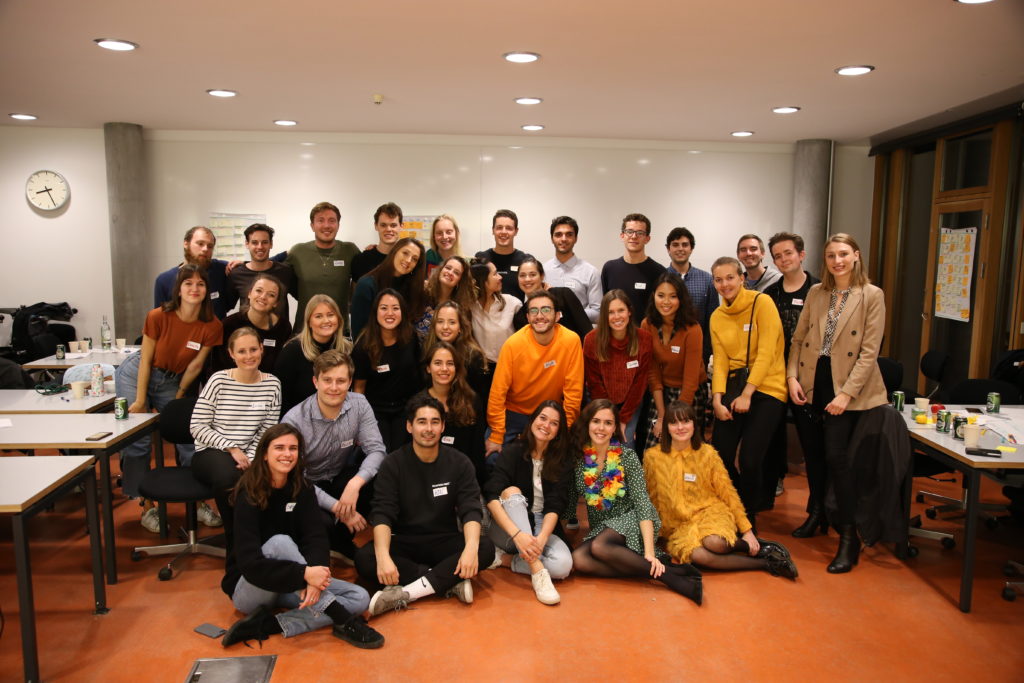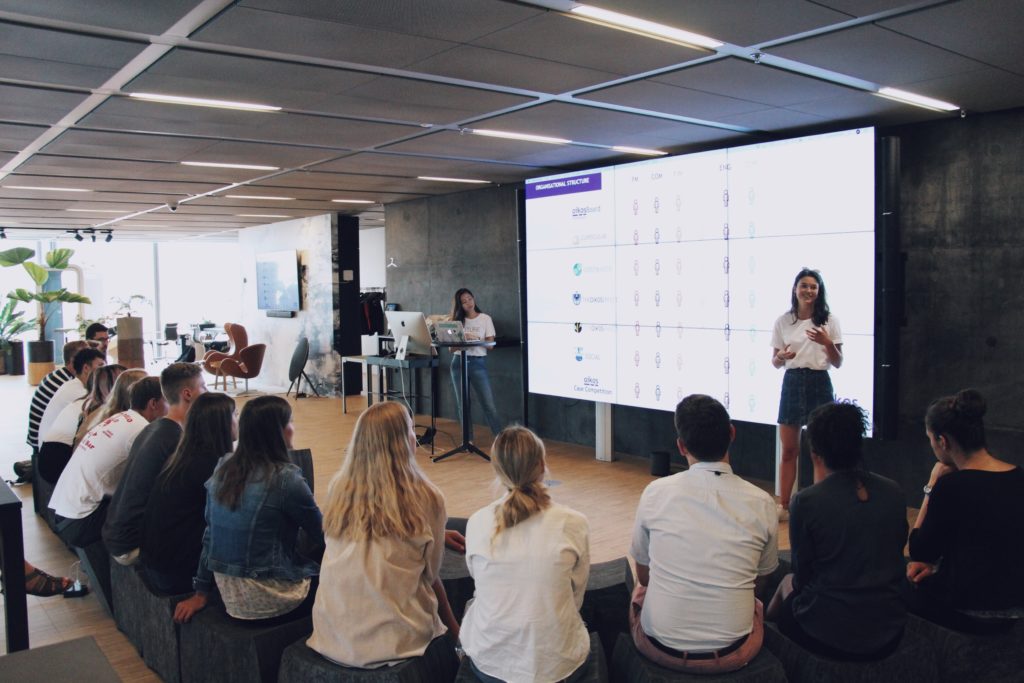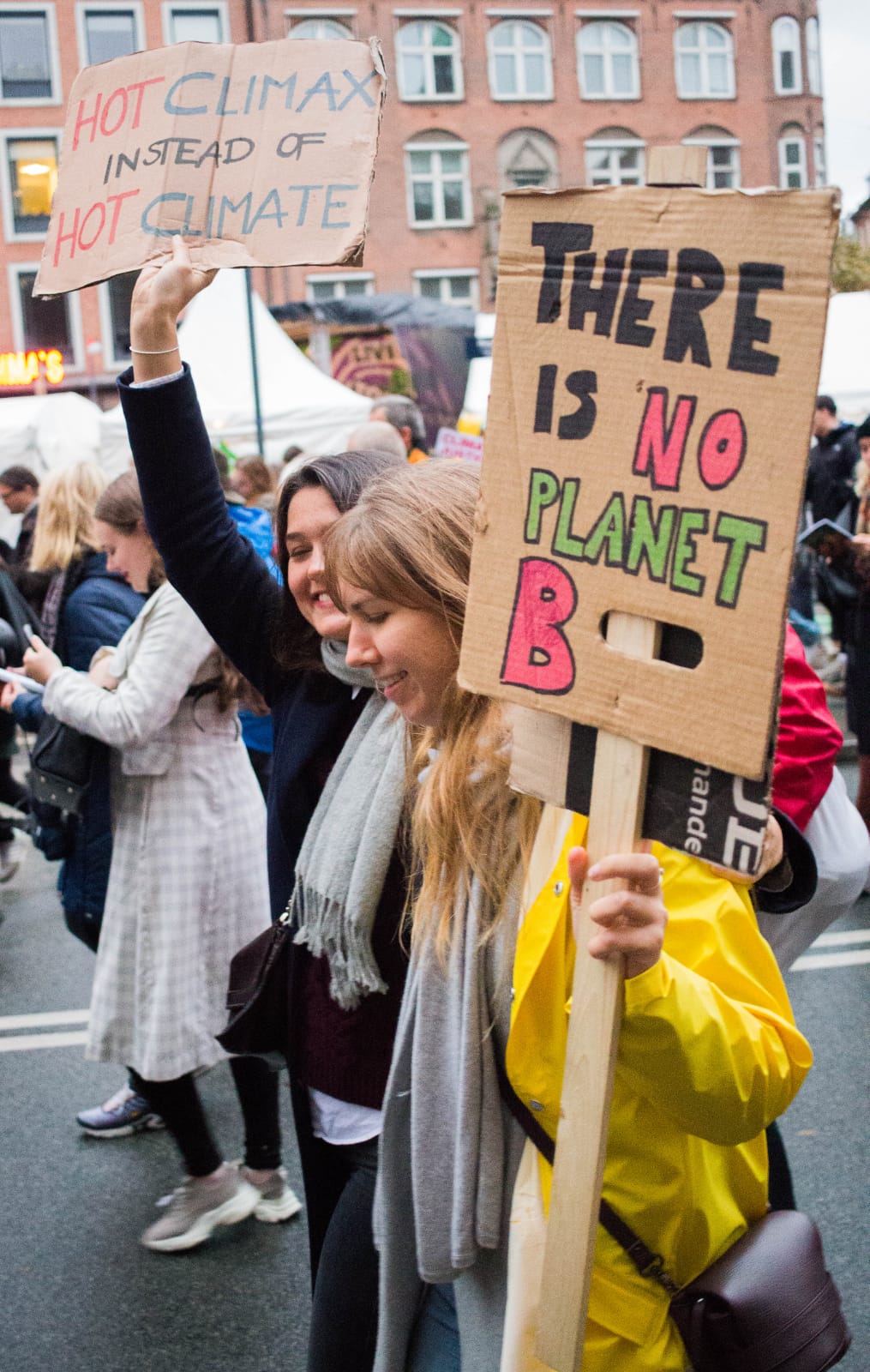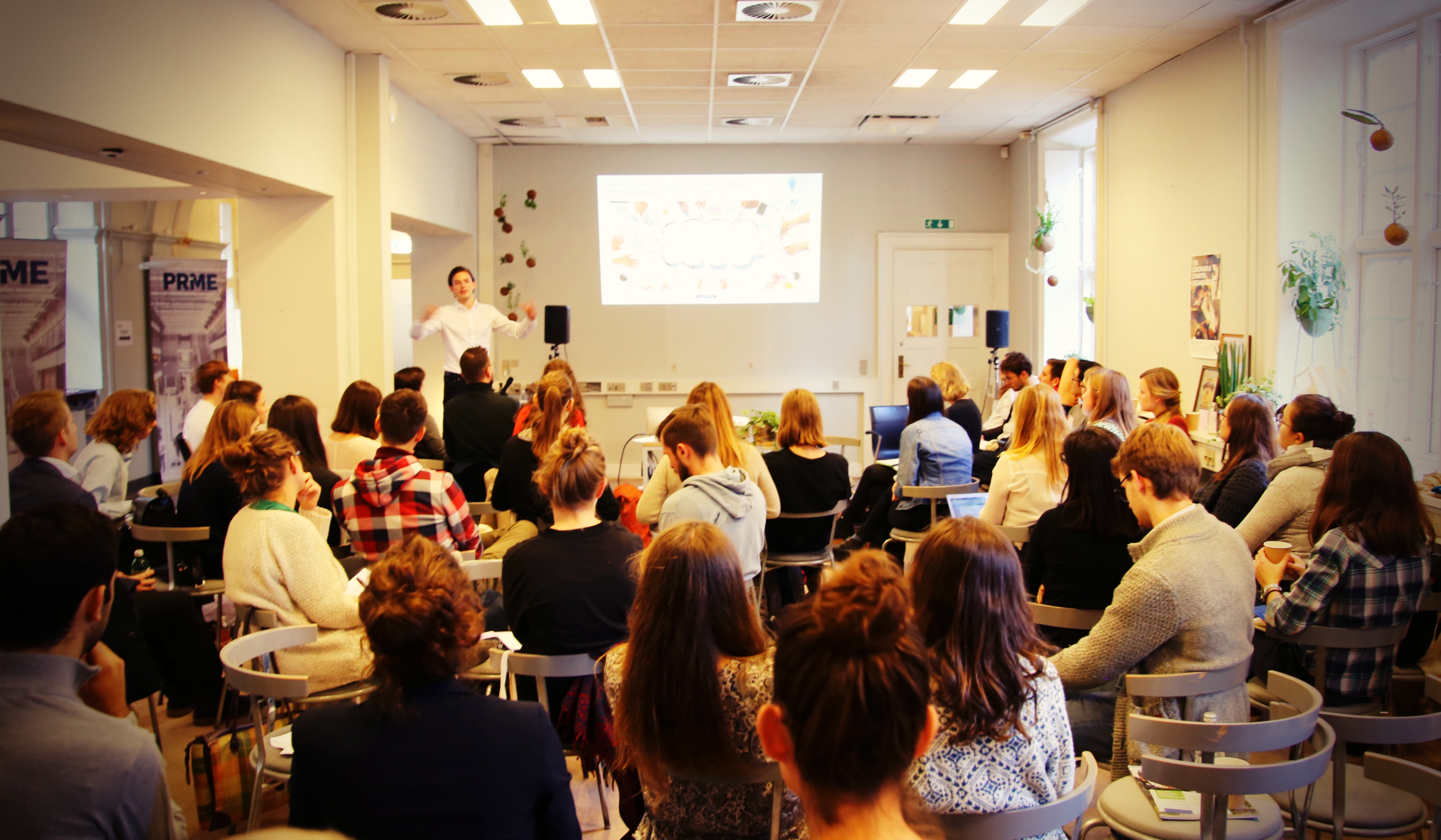By Julia Köhler
Sustainability – a concept that accompanies us every day: whether it is sustainable consumption, sustainable nutrition, sustainable traveling or sustainable management. What does sustainability actually mean and does it only serve as a means to an end?
Meet oikos Copenhagen
A big topic that concerns a student organization. Founded in 1987 in St. Gallen, oikos has ever since grown into an international student initiative with 50 local “chapters”, as we call it, on almost every continent in the world. With the underlying idea of integrating sustainability as one of the core topics in economics and business, this initiative has now been running for more than 30 years.
With its 48 active members, oikos Copenhagen is one of the largest chapters and contributes to the sustainability discussion at the Copenhagen Business School since 2012. By bringing students of different backgrounds together, the six projects are looking at the topic from various perspectives and are aiming at more sustainability in business and management education.

The triple bottom line is at the center of our values. Future leaders should be empowered to take change into their own hands. Integrity is a central component of organizational DNA: members stand behind the core values and actively develop them further. For this, our members are in a constant dialogue with each other and deal critically with the topic.
We see ourselves as representatives of the sustainability movement and each fulfills the role of a moderator in discussions with social environments.
That’s the way it should be. On the way there, oikos regularly encounters hurdles. Not only in management issues but especially on a personal, cultural and financial level. Our core values reflect a way of thinking that is becoming more and more recognized but is still not adequately represented and acknowledged by our educational system. Is it even possible to combine sustainability and business at all or is a system change required first?
What if you can make a change?
I started my time at oikos in 2018 as the Project Manager of oikos Impact, one of the six projects of the Copenhagen chapter. The project objective is to improve sustainability on the CBS campus.
Our team was negatively surprised that a university in one of the sustainable Nordic countries does not recycle.
In May 2019, we launched a pilot project with two recycling stations on campus. Recently, the campus management decided to launch recycling stations inspired by oikos Copenhagen at every canteen.
A very central project of our organization – Curricular Transformation – deals with the integration of sustainability topics in the curricula of all degree programs. oikos Copenhagen does not intend to create separate study programs exclusively on the subject of sustainability.
We see sustainability as a relevant topic just like accounting, taxation, innovation, strategy and entrepreneurship.
Our team is in touch with the Dean of Education and would appreciate supporting departments, course coordinators and professors in the shift to a greener curriculum.
oikos Career reflects the typical cycle of a student preparing for a career in the sustainability scene. Initially, students are accompanied by the content design of the curriculum vitae. Afterwards, networking event participants have the opportunity to meet potentially attractive employers. With the Career Fair, we optimally made it easier for some students to enter sustainable businesses.
Social Pioneers offers companies, mostly start-ups but also established smaller companies, a platform to teach students that it is possible to profitably combine entrepreneurship and sustainability. Students gain insights into the day-to-day work of companies, find out which obstacles founders have encountered on their way and can clean up the assumption that one cannot be profitable in running a responsible business.

As one of our most established projects, the annual GreenWeek marks a week in which the CBS campus and teaching activities are focused exclusively on sustainability. Here we invite guest speakers, representatives of sustainable companies, experts, researchers, and generally interested people to discuss the topic together and to seek mutual exchange. In addition to lectures, keynotes, and panel discussions, we offer workshops on the topic. This year’s GreenWeek will take place from the 10th to the 12th of March 2020.
The oikos Case Competition is a project that connects students with different backgrounds to an interdisciplinary collaboration. Students from across the Copenhagen area: from the Danish Technical University (DTU), Copenhagen University (KU) and the Copenhagen Business School (CBS) work together with companies and/or public institutions on sustainability issues. Our past cooperation partners include Accenture, the city of Copenhagen and IBM.
Let’s make a change, altogether…but how?
Since June 2019, I am sitting on the board of oikos Copenhagen with five other members and as the president and head of project management, I am leading the organization.
When requesting more support from decision-makers I often get asked about the competitive advantage the university could expect from oikos’ work. oikos Copenhagen stands for values that are hard to ‘sell’ as a business case.
The general opinion about sustainability is an important cultural barrier for oikos Copenhagen, as it is still considered an annoying side issue for ‘hippie’ students. The challenge is to build and maintain an exchange of ideas and communication about the relevance of the topic. I believe that business schools are an extreme example of this.
Meanwhile, several other organizations are being founded around the topic of sustainability and it is becoming increasingly difficult to keep track of the various initiatives. Questions like: ‘Who works on which topic?’, ‘How can we collaborate on solving the problem most efficiently?’ and ‘How do we communicate that we are working on something?’ pop up.
Another problem is the lacking overlap with other disciplines outside economics. Currently, our members are mainly CBS students. Although we offer room for students from other universities to be oikos members and to participate in the oikos Case Competition, this is not enough to recruit active members from other universities.
In my opinion, this interdisciplinarity is extremely relevant in all sustainability issues. In addition, it would help us to break away from the typical business thinking so present at CBS and to look at the challenge from several perspectives.
To achieve an effective transition towards a greener Copenhagen Business School, including a sustainable campus and direct as well as indirect education in sustainability for every CBS student, we want to be the bridge to bring all actors together to work on a solution.
For more information about oikos Copenhagen, visit our website at www.oikos-copenhagen.org
Facebook https://www.facebook.com/oikosCopenhagen/
Instagram https://www.instagram.com/oikoscopenhagen/
LinkedIn https://www.linkedin.com/company/oikos-copenhagen.
You are also very welcome to contact me personally via e-mail: president@copenhagen.oikos-international.org.
About the author
Julia Köhler is the President of oikos Copenhagen and a student in the management of innovation and business development at Copenhagen Business School.

